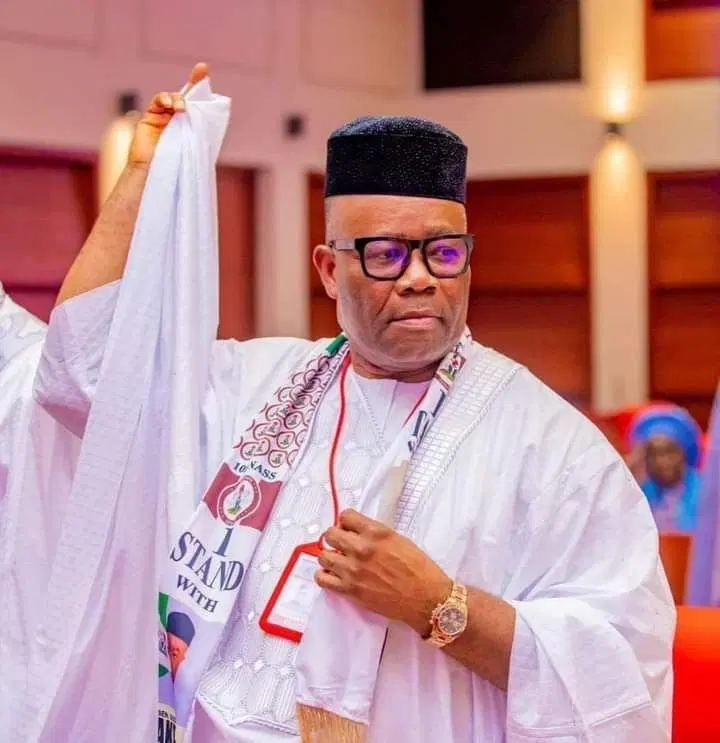Senate President Godswill Akpabio stated that fewer than 30 per cent of Nigerians pay taxes to the government.
He highlighted that despite low tax compliance, citizens still demand improved infrastructure, education, security, and other essential services.
Akpabio spoke during the public hearing on tax reform bills submitted by President Bola Tinubu on October 3, 2024.
He emphasized that Nigeria cannot continue outdated practices if it hopes to achieve meaningful growth and sustainable development.
The Senate President assured that, once passed, the National Assembly would enhance oversight to ensure efficient resource utilization.
He urged Nigerians to obtain copies of the bills and review them thoroughly rather than relying on social media.
Akpabio criticized leaders who condemned the process without reviewing the content of the proposed tax reform bills themselves.

He also committed to attending the two-day hearing, expressing frustration with misinformation spreading rapidly on social media platforms.
Key government figures attended, including Wale Edun, Lateef Fagbemi (SAN), Zacch Adedeji, and Adewale Adeniyi, among others.
Senator Sani Musa, Chairman of the Senate Committee on Finance, explained the purpose of the tax reform hearing.
Musa confirmed that both Senate and House representatives had completed the second reading of the proposed reform bills.
He noted that 71 stakeholder groups were invited for the hearing, reflecting diverse national economic and financial interests.
The main objective of the reform bills is to increase revenue, supporting national development in crucial economic sectors.
The proposed bills include the Nigeria Tax Bill (NTB) 2024 and Nigeria Tax Administration Bill (NTAB) 2024.
Also included are the Nigeria Revenue Service (Establishment) Bill (NRSEB) 2024 and Joint Revenue Board (Establishment) Bill (JRBEB) 2024.
Senator Musa stressed that these reforms would position Nigeria’s economy for global competitiveness and sustainable economic expansion.
He added that infrastructure, education, agriculture, and other economic sectors would benefit significantly from the expected revenue growth.
Musa concluded by emphasizing that collective stakeholder participation is crucial for successful reform implementation and national economic progress.



